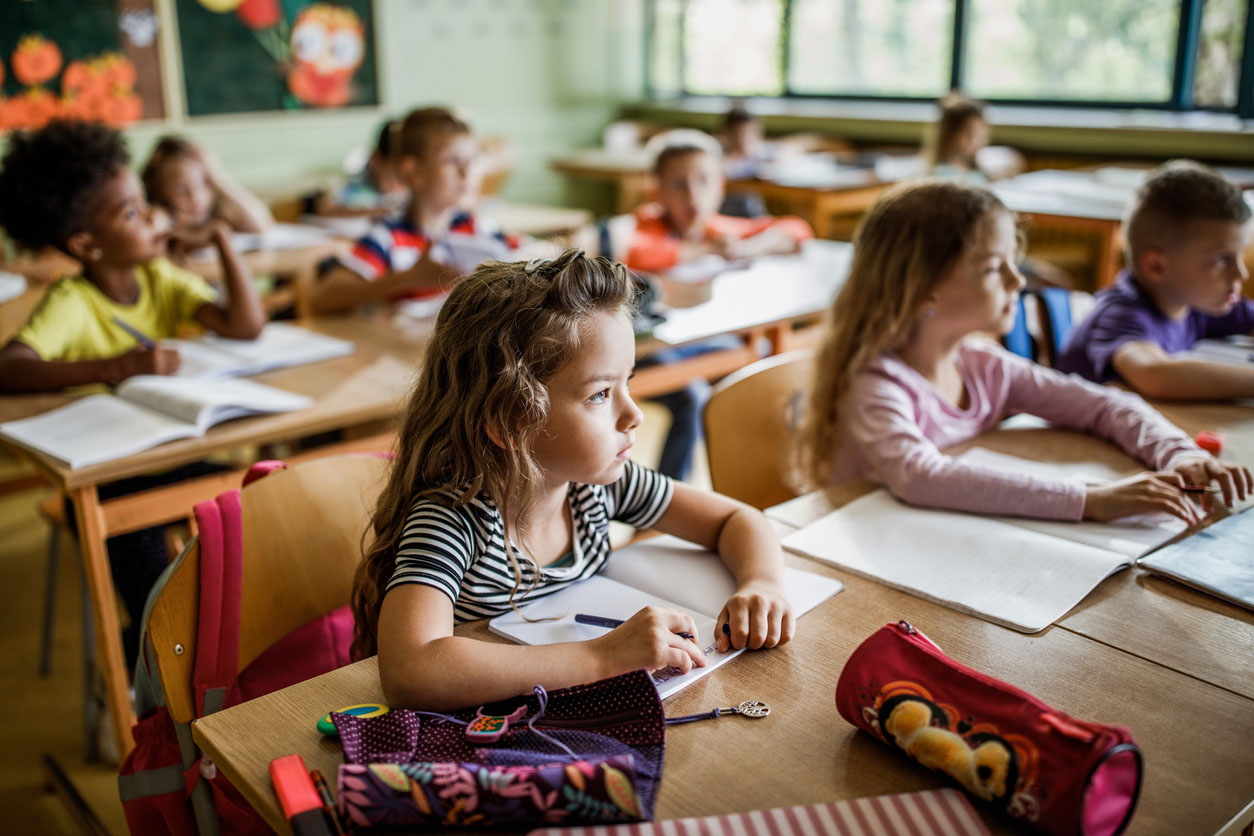
Gifted students not only think differently from their peers, they learn differently as well. Exceptional children can be at risk for becoming behavior problems in the classroom if they become restless—if bored or unreached by a delivery system or source material, their attention will likely wander.
In the past, gifted students who zipped through seat work or tests early were given tasks as “teacher’s helper.” Not only does this practice threaten to bump up against child labor laws, it potentially exposes the child to bullying and further separation from peers.
Avoiding either of these dangers is possible by linking a gifted child’s interests to work and the school environment. Here are a few ways to keep exceptional children engaged and active when it comes to their classroom experience.
Inventory Their Interests
Some gifted children are hugely attached to their interests and manifest them early. There’s no mistaking what they’d like to do when they grow up—or now. But others are passionate learners in search of a subject. Interest inventories geared to various age groups can be useful in helping a gifted child, parents, and educators discern a good path.
These interest inventories ask children to think about how they like to spend their free time, how they feel about introducing competition into school work, and what kinds of activities they might be attracted to (such as alone time vs. group time, or tasks involving a lot of kinetic activity vs. remaining more still) Interest inventories can also create insight into how a gifted student learns. Those which dive more deeply into thought processes can yield information on whether a student is visual or tactile, imaginative or logical.
It’s important to remember that these skills and inclinations might not exist to the exclusion of one another, and often manifest together. For example, just because a student has poor fine motor control doesn’t necessarily mean that she doesn’t enjoy crafts or studying art, and a child who likes to be active might still enjoy reading. Using interest inventories are mere starting points and guides rather than definitive assessments on a child’s abilities and skills. Always follow the child’s lead when interests are expressed; these will allow those who work with them to better enrich a day in the classroom or within a structured environment.
Group with Other Gifted Students
Placing gifted children with one another in study groups or enrichment sessions can be valuable in many different ways. With other gifted children, they need not feel pressured to hide their gifts, and can challenge one another in healthy ways. Older children can positively influence and inspire younger ones. Smaller children can help older ones develop patience and group working skills.
Ensuring that exceptional children mix with their peers yields many benefits. Children who are grouped by ability with other exceptional students may not feel as lonely or isolated as peers who are educated in more traditional settings. They are less apt to think of themselves as strange or unable to fit anywhere. Having the support of a peer group outside of children of average abilities can boost confidence, challenge usual thinking patterns, and provide sources of intellectual stimulation outside of media and adults.
It’s important to mix children with different abilities, especially if some are twice exceptional. Spending time with these students help non-2e children expand their definition of giftedness and develop compassion for those of varying gifts. Especially if a peer is gifted and facing a physical, neurological, or behavioral handicap, grouping with those who are outside a gifted child’s usual orbit can help develop the exceptional child develop social skills and encourage group problem-solving.
Let Them Practice as Professionals
Gifted students and those who care for or educate them often face the challenge of asynchronous development. A traditional hallmark for gifted students is to prefer the company of adults to that of other children, simply because they can be bored by their average peers. But due to asynchronous development, gifted students can also be socially awkward around people of all ages. They may be perceived as arrogant, bossy, or impatient.
Some gifted children who are now adults report that they couldn’t wait to grow up—not necessarily to have the freedom to eat dessert first or choose their own bedtime, but because they are eager to implement their own life choices and, in fact, to be taken seriously in their fields of interest. Young scientists wish to speak with their elders intellectual fields to learn the latest about chemical engineering research; exceptionally talented writing students are eager to learn from grown-up authors about the best ways to construct a plot.
By allowing gifted students appropriate contact with those who work in their goal career fields, educators and parents provide fertile ground for mentorship and role models in the adult world. Allowing students to conduct supervised experiments in actual labs, undertake a real-time archeological dig, prepare an animal for a 4H showing, or write and market a book is not only practice for the child’s professional life—it’s showing the student that he or she is not patronized and can make an impact. Allowing them to develop their gifts in this way not only assists in valuable skill building, it can encourage a student to work at his or her own pace and become more attentive to less favored subjects.
Invite Them to Become Problem Solvers
Gifted children, as complex thinkers, can become easily upset by world events or perceived injustice. By letting them explore these issues, and ensuring that they are provided with a wide range of information to encourage critical thinking beyond simple advocacy tactics, exceptional students can channel their passions and work ethic into worthy causes.
Doing so can help encourage the gifted to think beyond themselves, encourage empathy, and remind them that a world exists beyond their bedroom and classmates. Becoming personally invested in a project or issue can not only help exceptional children to feel that they are helping address a social issue which upsets them.




